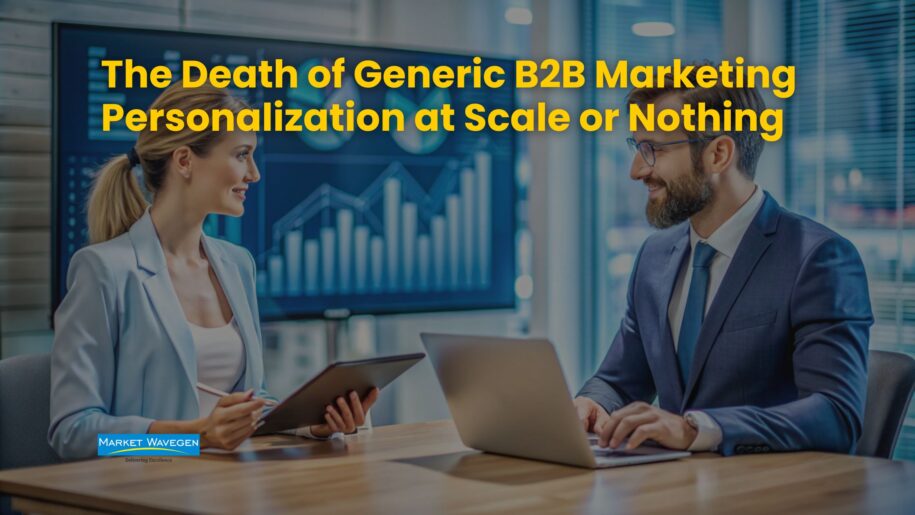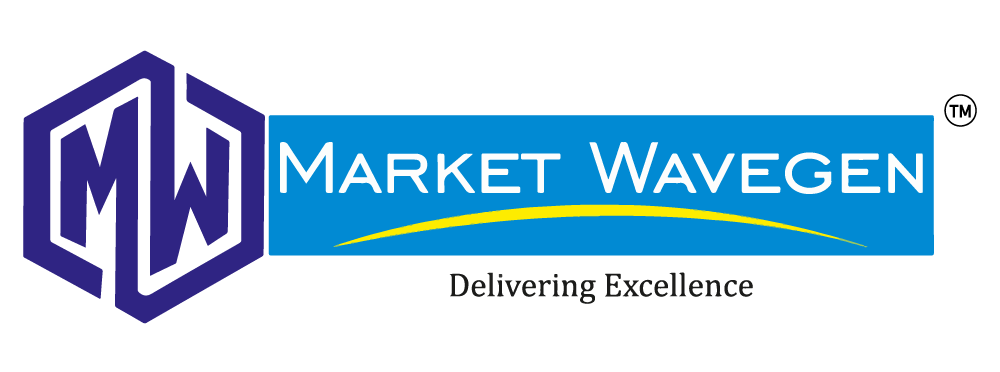Why Generic B2B Marketing is Dead
The days of broad, one-size-fits-all B2B marketing are over. Buyers are fatigued by impersonal emails, templated cold outreach, and mass-market content that doesn’t address their unique needs. With decision-makers inundated by generic sales pitches, the only way to stand out is through hyper-personalization.
The Data Speaks: Personalization Drives Revenue
- 80% of B2B buyers expect the same level of personalization as B2C customers (Forrester).
- Personalized emails have a 26% higher open rate and generate 6x higher transaction rates (Campaign Monitor).
- 78% of B2B companies using AI-driven personalization report a direct increase in sales conversions (McKinsey).
In other words, if you’re not leveraging AI-powered marketing and personalized outreach, your competitors are—and they’re winning.
The New Age of B2B Marketing: Personalization at Scale
1. Deep Audience Segmentation: Go Beyond Industry Tags
Traditional segmentation based on company size or industry is no longer enough. Instead, successful B2B marketers use:
- Behavioral data (what content they consume, engagement levels, site visits)
- Firmographics (revenue, growth rate, funding rounds, hiring trends)
- Psychographics (pain points, decision-making triggers, preferred communication styles)
🔹 Example: Instead of targeting “SaaS CEOs,” segment them as:
- VC-backed SaaS startups with aggressive hiring trends.
- Bootstrapped SaaS founders focusing on profitability.
- Mid-market SaaS scaling from $10M to $50M ARR.
2. AI-Powered Sales Outreach: Beyond First Names
Using AI-driven tools, you can hyper-personalize outreach at scale. But personalization goes beyond adding a prospect’s first name in an email. True hyper-personalization involves: ✅ Real-time insights – AI tools like MarketWaveGen analyze a prospect’s recent LinkedIn activity or company news before sending outreach. ✅ Dynamic content insertion – Tailor email copy based on a lead’s specific role, industry, and challenges. ✅ Predictive engagement scoring – AI determines the best time and channel to engage (email, LinkedIn, calls, video messages).
🔹 Example: Instead of sending “Hey John, I see you’re in SaaS,” try:
“Hey John, I saw your company just raised Series B funding. Scaling sales teams fast is tough—here’s how top SaaS companies like [competitor] use AI-powered sales playbooks to hit aggressive revenue goals.”
3. Hyper-Personalized Content: Real Value, Not Fluff
Content marketing must evolve beyond generic whitepapers and ebooks. High-impact content is:
- Persona-specific – Different content for CFOs vs. Sales Directors.
- Context-aware – Adjust messaging based on a company’s funding stage, industry trends, and pain points.
- Dynamically delivered – AI-driven content hubs personalize recommendations based on user behavior.
🔹 Example: Instead of publishing a general “B2B Marketing Trends 2024” report, create custom interactive dashboards that change insights based on a user’s industry and company size.
Actionable Framework: How to Implement Hyper-Personalization in B2B
Step 1: Build a Data-Rich ICP (Ideal Customer Profile)
- Use AI tools like Clearbit, Apollo, or 6sense to enrich prospect data.
- Track real-time intent signals (website visits, content downloads, LinkedIn interactions).
Step 2: Automate Personalized Outreach with AI
- Use tools like Outreach.io or Salesloft to create dynamic email sequences.
- Leverage LinkedIn automation for warm, relationship-based engagement.
- Incorporate personalized video messages using Vidyard or Loom.
Step 3: Scale Personalized Content with AI-Generated Dynamic Assets
- Build AI-driven content hubs that adapt based on user behavior.
- Personalize blog recommendations using machine learning algorithms.
- Automate custom reports for prospects using their own industry data.
Final Thought: Adapt or Be Ignored
Generic B2B marketing isn’t just ineffective—it’s actively damaging your brand. Decision-makers now expect tailored, relevant, and insightful engagements. AI-powered hyper-personalization isn’t the future of B2B marketing; it’s the present.
🔹 Take Action Now: If your B2B marketing strategy isn’t leveraging AI for personalization at scale, you’re already behind. Start optimizing today, or risk being left in the dust.


Leave a Reply